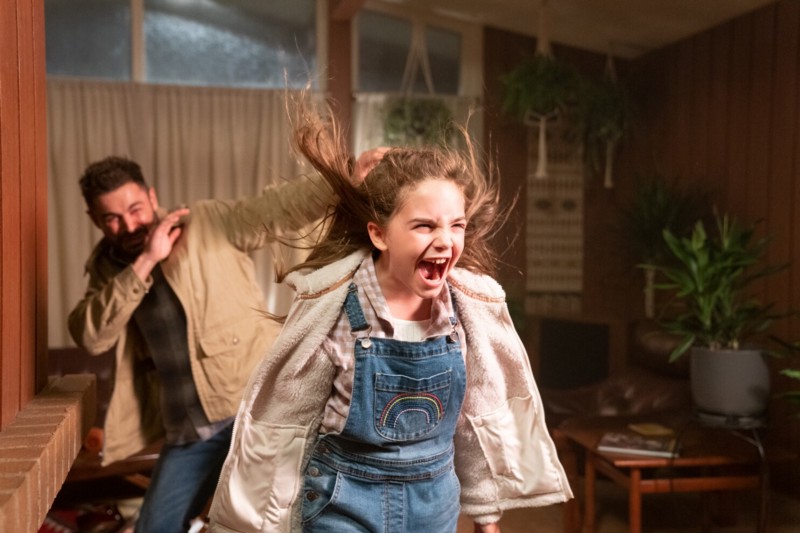
I’ve not seen the Bob’s Burgers animated TV series, so went into The Bob’s Burgers Movie with absolutely no foreknowledge. Perhaps not always an advisable move. After all, I avoided the Downton Abbey films purely because I’ve yet to watch the TV series. However, in this case, my recklessness paid off. The Bob’s Burgers Movie stands in its own right as entertaining, funny, and extremely silly, packed with hilarious one-liners and a high gag rate, even though there may have been jokes I missed, due to unfamiliarity with the source material.
The plot concerns the Belcher family — the eponymous Bob, his wife Linda, and their three children Tina, Gene, and Louise. Their burger bar is on the verge of collapse when the bank refuses to give them more time for a loan repayment. To make matters worse, a sinkhole appears in front of their restaurant, which leads to the discovery of a skeleton and a murder investigation. With the family business in peril, the children attempt to save the day by skipping school becoming amateur sleuths.
As mentioned, I have no point of comparison for the TV series, but certainly, this looked impressive on the big screen. Directors Loren Bouchard and Bernard Derriman oversee an opulent animated widescreen palette that packs in the blink-and-you-miss-them jokes. I particularly liked the pun-tastic names of businesses; the funeral parlour and crematorium “It’s Your Funeral” next to Bob’s Burgers, for instance. On top of that, there are a few amusing musical numbers and some engaging fantasy sequences (the imagined version of Tina’s school crush, for instance).
Vocal performances (from the likes of H Jon Benjamin, Kristen Schaal, Dan Mintz, John Roberts, Eugene Mirman, David Wain, Zach Galifianakis, and Kevin Kline) are all solid. The narrative is engaging, and there are moments of poignancy in the character arcs, particularly concerning Louise, and her determination to prove she isn’t a scared baby. The aforementioned Bouchard and co-writers Nora Smith and Jim Dauterive imbue proceedings with a kind, charming, good-natured undercurrent. Amid the preposterousness, characters undergo relatable struggles and anxieties, with just the right pinch of offbeat. It never strays into excess sentimentality, remaining energetic and engaging throughout.
All things considered, The Bob’s Burgers Movie exceeded expectations, and I enjoyed it a great deal. I’m now going to track down the TV series.
UK Certificate: PG
US Certificate: PG-13








